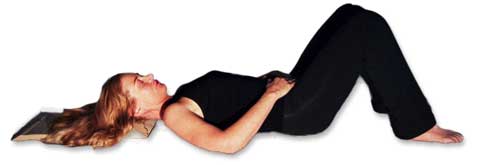Your Pelvic Floor Health: Are you pregnant or nervous about sneezing, coughing or lifting?
About your Pelvic Floor Muscles 
Over 4 million Australians have some kind of bladder or bowel control problem according to Continence Foundation of Australia. Incontinence can affect both men & women, regardless of your age and background.
The pelvic floor muscles include those that support the bladder, bowel and uterus. Pregnant women or women who have recently given birth are at most risk of developing bladder or bowel control problems. Stress incontinence includes a loss of urine during coughing, sneezing, straining or lifting.
There is no need to be embarrassed about urinary incontinence. According to the National Prescribing Services (NPS) there are some factors that may make you more at risk of becoming incontinent. These include recent childbirth, being overweight, chronic conditions, increasing age and constipation.
The great news is that stress incontinence can be well managed and often cured with the appropriate help.
Are you pregnant or recently given birth?
Developing a strong pelvic floor is important pre and post labour. During pregnancy, strong pelvic floor muscles help support the weight of a growing baby. There is also research to suggest that strong pelvic floor muscles may help during labour.
A study by Salvesen (2004), a Professor in Obstetrics and Gynaecology found that women who perform pelvic floor muscle training might prevent a prolonged second stage of labour.
What you can do:
Some healthy tips to improve your pelvic floor health:
– Avoid jumping or high impact exercise
– Maintain a healthy weight
– Drink 6-8 glasses water a day
– Eat a healthy diet with plenty of vegetables and fruit
Pelvic floor exercises should be performed daily. The number of times you need to perform the exercises each day will depend on whether you are strengthening weak muscles or trying to maintain strength.
Did you know?
Your osteopath can assess your pelvic floor function and tailor an exercise program to meet your specific needs. Your osteopath can also discuss relevant lifestyle factors with you. It is also important to involve your GP in your care.
Also, if your pelvic floor muscles are shortened or in spasm, they may not be functioning effectively. There are gentle pelvic floor techniques your osteopath can perform to help your pelvic floor muscles behave optimally. Correcting your low back and pelvic biomechanics can also improve your pelvic floor muscles.
To speak to a female osteopath about your pelvic floor or pre or post-pregnancy health please call to speak to one of our osteopaths at Body of Life Health Centre on 02 9453 3046.
Article written by Dr Melanie Woollam.
Sources include articles written by: Salveson & Morkved (2004), Hay-Smith J, Morkved S, Fairbrother KA et al (2008), National Prescribing Services (NPS) Website and Continence Foundation of Australia Website
